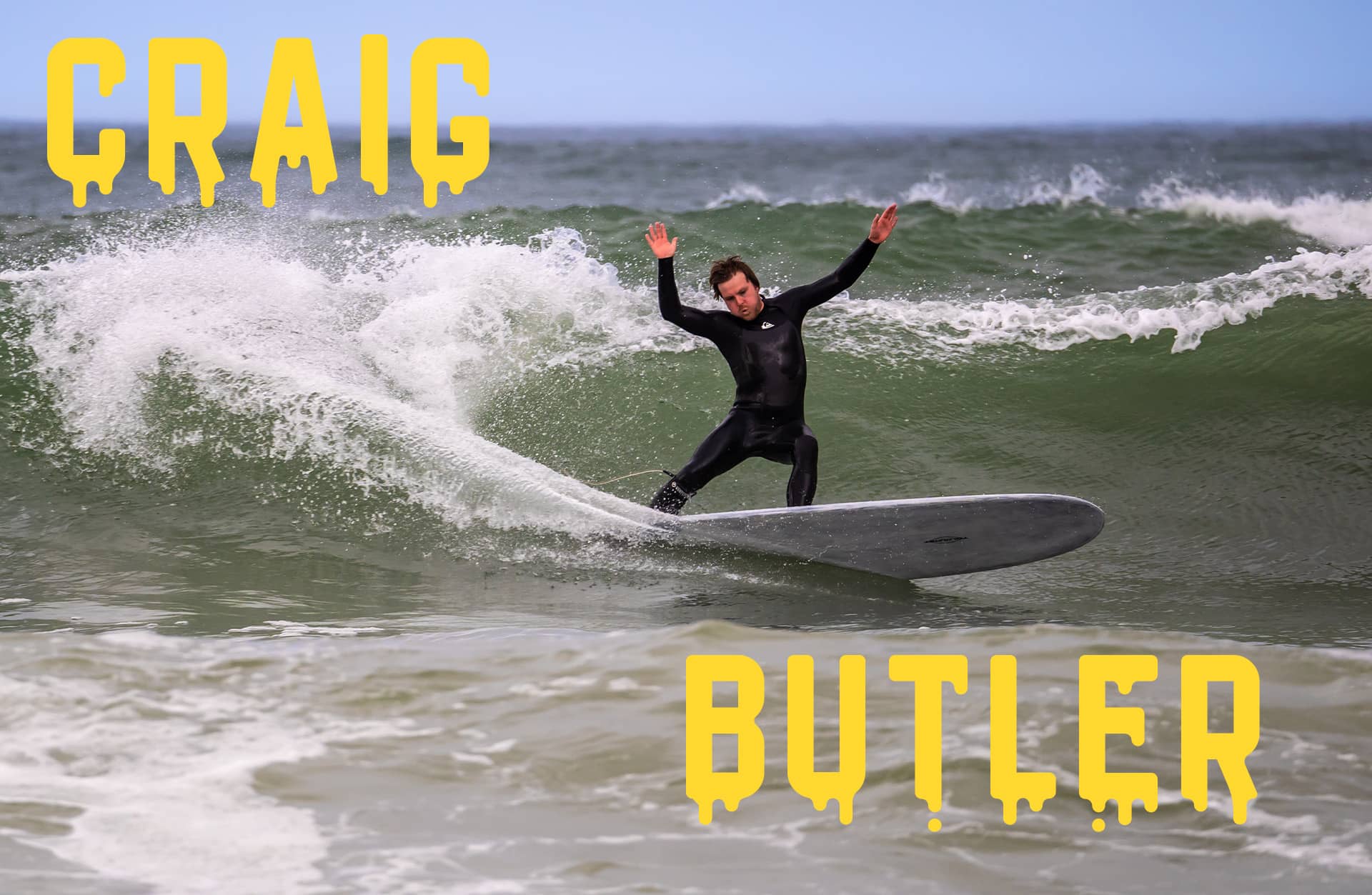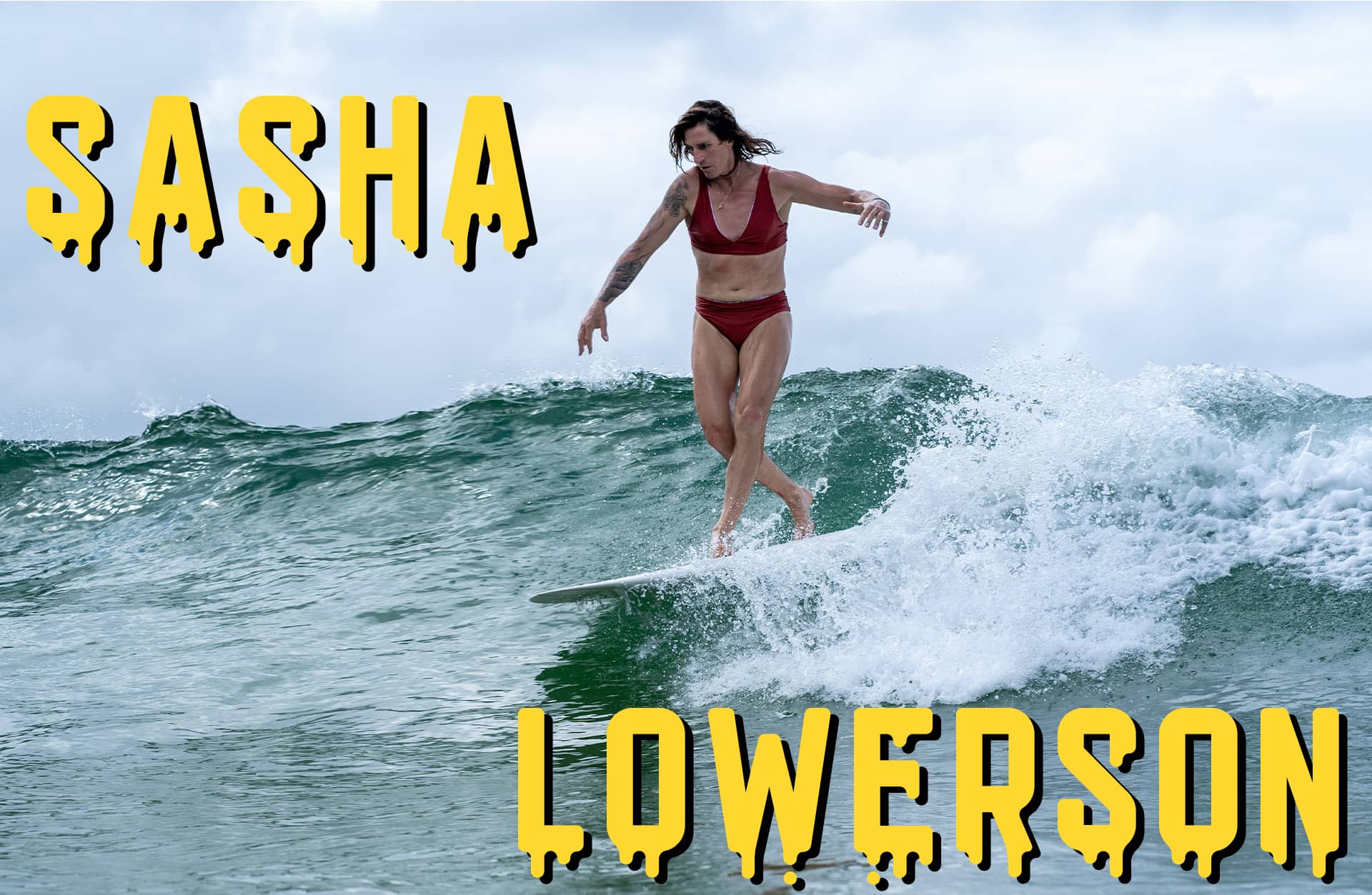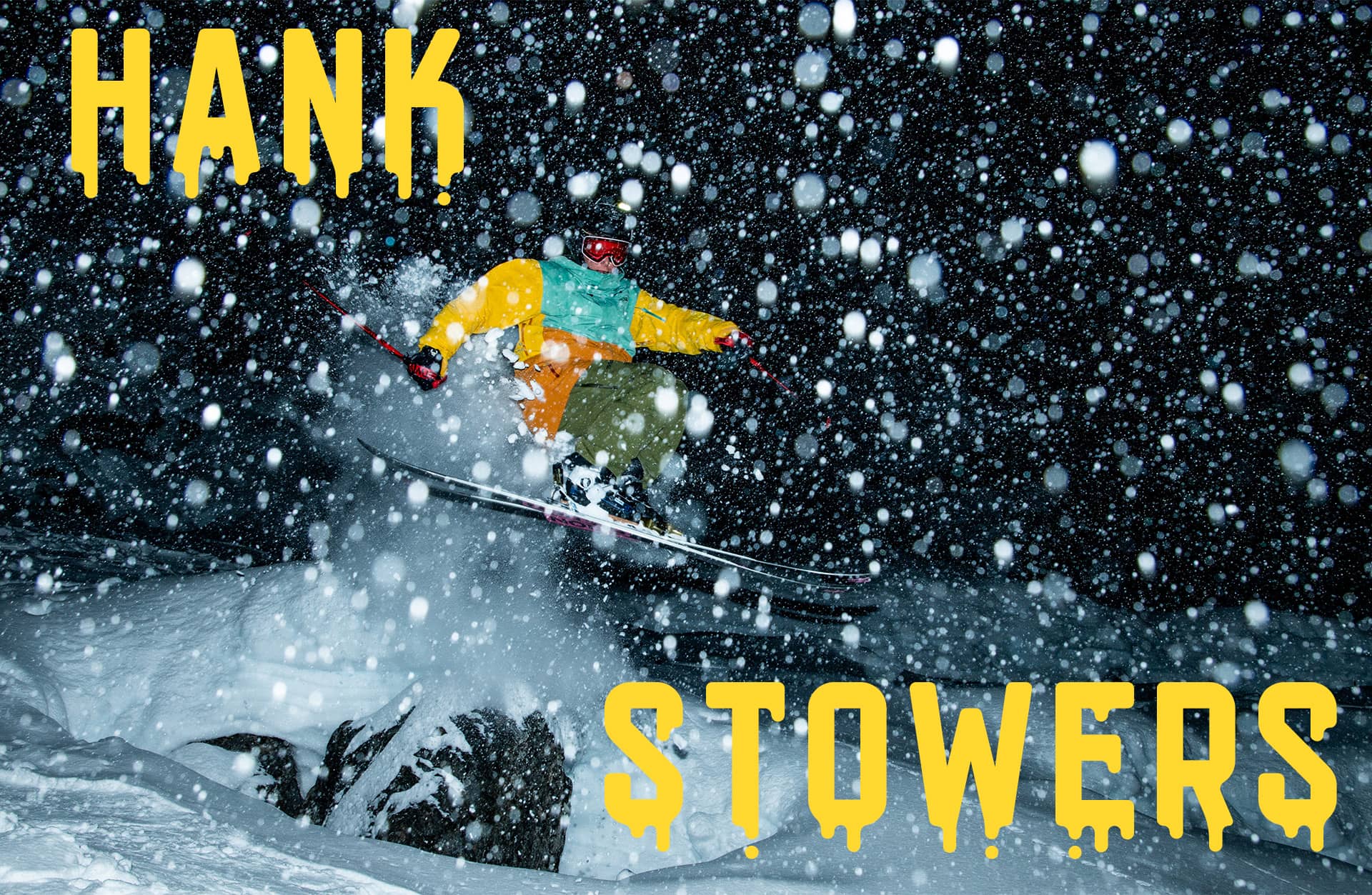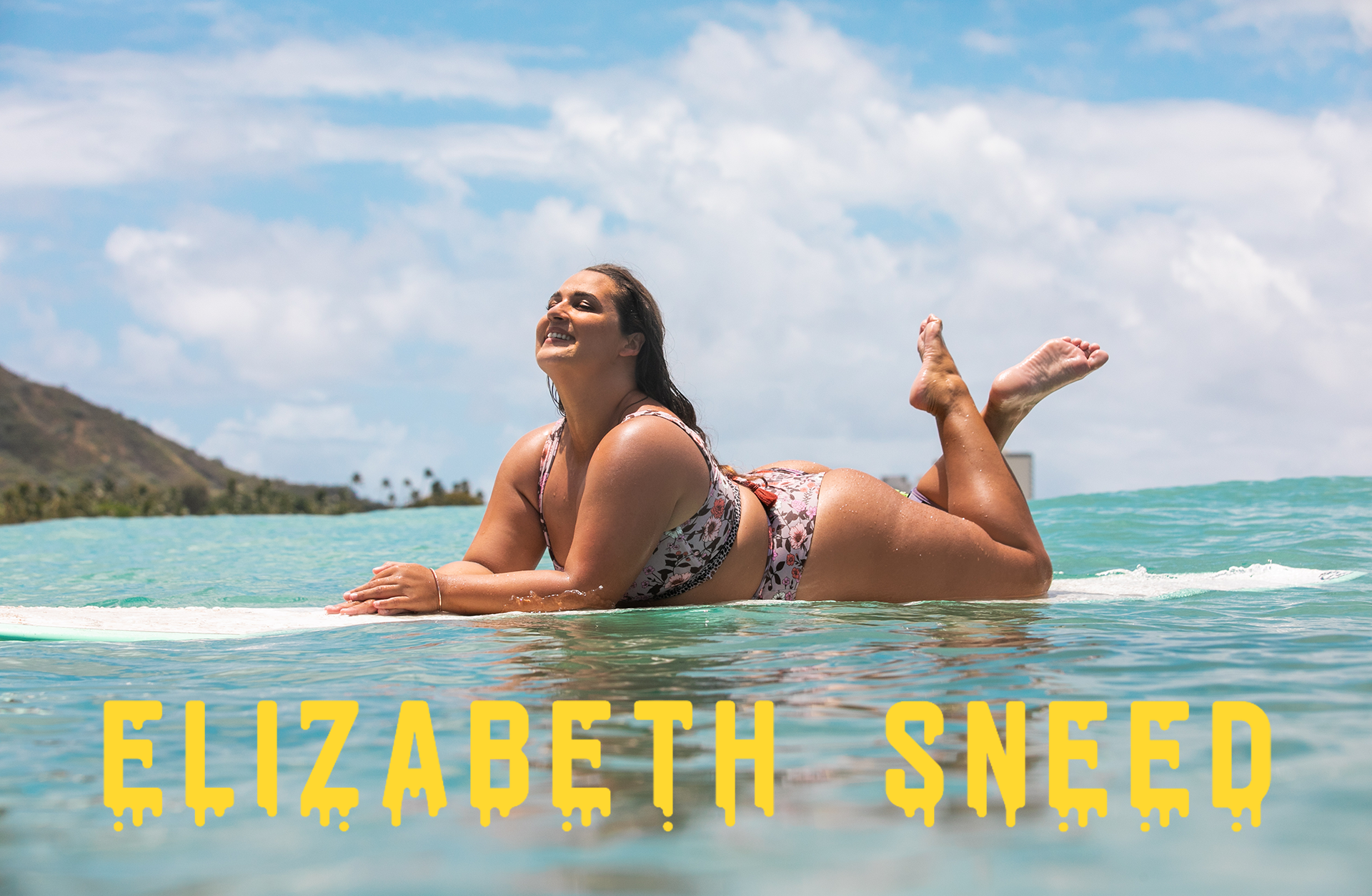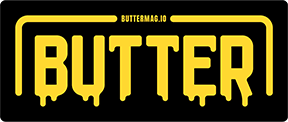SURF // 01 JUNE 2022
THE CALL OF THE SEA
“That was [my life for] a year, it was the craziest thing. I didn’t know my ass from my elbow. I didn’t know if I was coming or if I was going. I couldn’t surf. I put on weight. I couldn’t go outside the door. What I have now, two years later, and maybe you can relate to this, and maybe everybody can relate to this. You know when you have a bad dream and you wake up in the morning and you’ll think, oh, my God, was that a dream or did that happen?” shared Craig Butler, the 7X Irish National Champion Surfer, reflecting on the year of his life that remains hidden behind a haze.
In 2014, Butler was at the top of his game and taking on the surfing community’s biases by appearing in the Netflix Documentary, Out in the Line-Up, a film that takes a deep dive into the taboo of queerness in surfing. After years of looking at the demoralizing results for “gay surfer” growing up, he was convinced by the producers of the film to become a much needed positive role model.
With a family surf shop perched on the Southern Coast of Ireland in Tramore, Butler was never too far from the ocean. When the uncertainty of childhood overwhelmed him, Butler would take his post on the building’s decking. “I was down hanging out like every day, I used to after school or bump off school or weekends, weekdays, morning, evening, night,” he explained. “I used to just hang around there and nobody would bother me.”
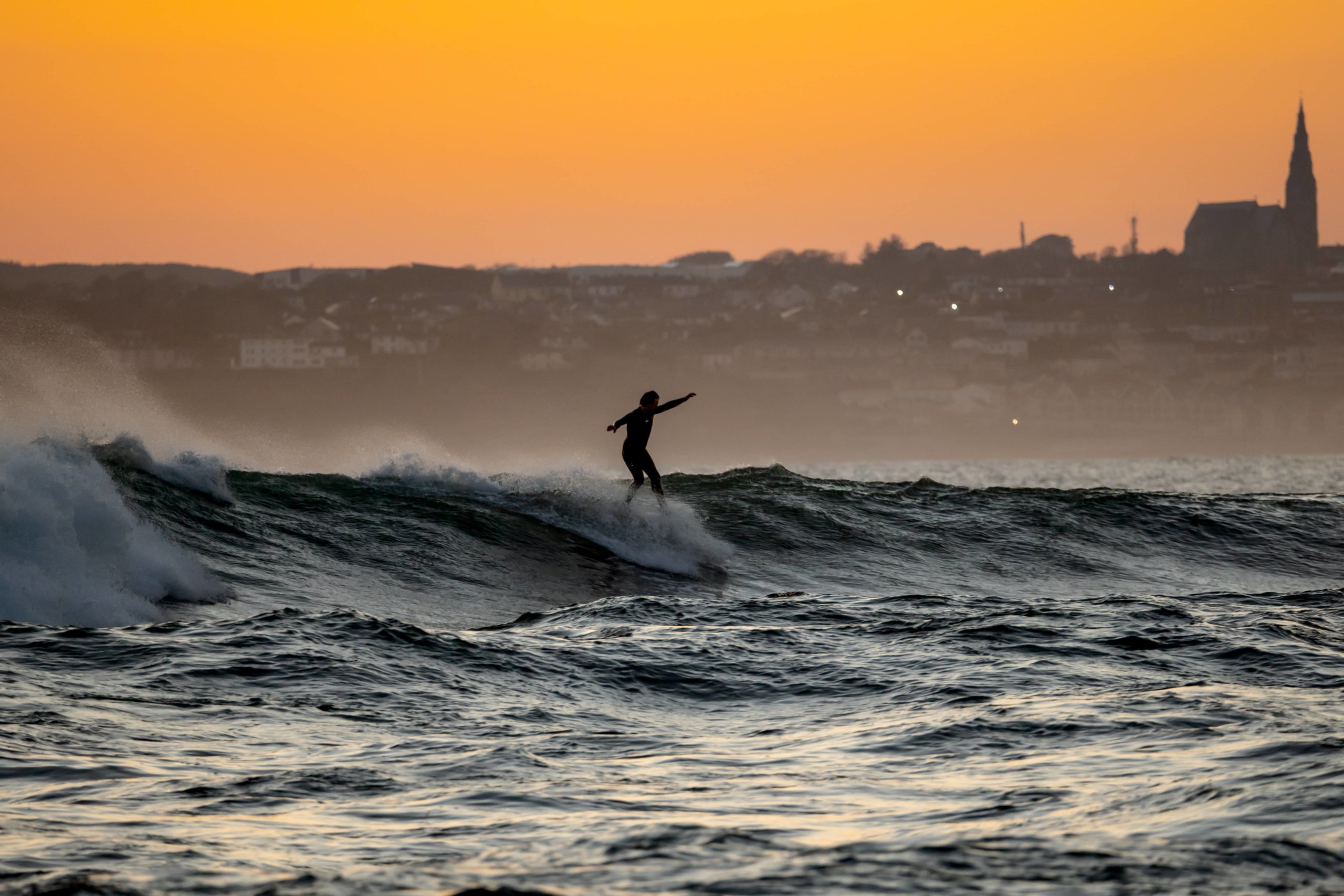
Still, Butler tried out his fair share of sports before committing to surfing. “I was a bit of a weird kid. I think most people are. But my parents, they tried to find me a sport to do,” he explained. One of these many attempts included Hurling, an Irish Gaelic sport that plays like a mix between lacrosse, hockey, and rugby.
“So I’m there with this leather ball that weighs, fucking, like a brick”, said Butler, recalling one of his Hurling experiences. “And somebody came up with a hurley and goes to hit the ball at me, I remember hitting my finger, my thumb, I remember my whole fingernail coming off. I’m staring at my thumb and I am in tears. I’m just saying to the sports teacher, can I leave now? Can I just please just go now? And he’s like, just sit down and chill out. Okay? I got sweets, but I’m just like. I was still in primary school and I just went, this is shit.”
Needless to say, Butler was extremely grateful to be able to leave the Hurling field and spend his time surfing. As the years passed and more of his peers became interested in the sport, Butler was able to make friends his age to surf with after school.
For Butler, a big part of this expanding friend group and community came from his participation in local surf contests. As he explained, “[Surf contests were] more of a just way of maybe going on a surf trip, going up to this contest, meeting other people the same age. We had a junior contest, under 18, and then [I was] able to broaden the reach of my network of friends around the country.”
Though competitions at heart, these gatherings were more of a place for families who’d known each other for years to get together and, as Butler said, “just have a fucking laugh.” This lackadaisical attitude was true at all levels of competition. With a lack of big name sponsorship at events across the country, athletes are typically competing for just the title itself.
Continuing to compete, Butler racked up his seven national titles, and in 2014 with his public coming out to the surf community via Out in the Lineup, he set the goal of being the first openly gay surfer to compete on the World Surf League (WSL). However, life never follows a simple path, and two years of health issues almost pushed Butler away from surfing permanently.
In 2018, Butler seeked emotional support for the capricious mood shifts he was experiencing. As he explained, “I get amazing surf, amazing surf in Ireland. My adrenaline was flying really high. I would win contests, I would travel to contests. I would experience those amazing highs from all these things. But, what happens when you get an adrenaline rush is you crash afterwards.”
“You’re going to be on a high for a week. You have to pretty much expect that you’re going to spend a day or two days after that of downtime, just no energy. Maybe a little bit tired afterwards, maybe a little bit defeated. You’re going to be carrying a lot of stress at these contests. If I was traveling to the other side of the world to compete by myself, it was kind of like I was carrying the whole surfing community of Ireland on my shoulders to the contest. If I did bad in the contest, I’d stress out too much. And sure, I’d spend a couple of days feeling sad afterwards, but that’s 100% normal. Unfortunately for me, I didn’t realize [these ups and downs were] normal.”
Seeking answers to find more stability in his life, Butler went to see his doctor. Upon listing his symptoms at his first visit, he was given a prescription for antidepressants and sent out the door. Healthcare services in Ireland are in a rough state. Many patients are put on long waitlists to receive treatment for any and all ailments. “I was put on a waiting list for four years to go see a psychologist. Four years,” Butler confirmed. Given this system, where patients may not be able to see a specialist for years, doctors will write prescriptions in hopes of limiting further damage before a patient can be seen. This strategy does not always work.
“This is my doctor, of course what he tells me is going to be 100% accurate. It’s going to be right what he tells me, he’s writing you this prescription, giving it to you, telling you you’re going to feel good. Everything’s going to be back to normal once you take these drugs. So you’re going, okay, he’s my doctor. Why should I doubt them? I’m going to go get this prescription, take these tablets, and things are just going to get back on track,” said Butler. “But what happened was I had a reaction to the medication that I was given.”
Butler’s drops in mood became more frequent and were lasting longer, to the point where he would have one good half day and then three weeks of depression. To cope with these exasperated symptoms, Butler was put on more medication, but the downward spiral continued. As he explained, “I could not function from one end of the day to the next. I ballooned up to 110 kg and I could not surf. I would get rides to the doctors if I needed to go or I would [get a] lift down to a café, but that was like once a week. I spent the rest of my time indoors in my bed.”
As the number of tablets increased, Butler withdrew more and more. The cycle may have continued to today if it wasn’t for some tough love from his friends. A close friend, one year post a major fallout with Butler, messaged him demanding answers.
“He’s like, what the fuck is going on?,” recalled Butler. “What is going on with you? He said, there’s people in the water talking about you as if you’re dead. He said, It’s so sad to see you, you once used to be, like, a great surfer, great guy. In the water, always around and in good spirits and now people are like, what happened to him?”
Then not even a week later another friend paid a visit and conveyed a similar message. “He came to me and he’s like, that’s so sad to see somebody who is in a good bill of health, really healthy and a great athlete and surfer,” said Butler. “Now all of a sudden the state you’re becoming like, look at yourself. Look at you. What the hell is going on?”
“I’m like, wow. Now I really feel like shit. But it was one of the best things that anyone has ever said to me.”
With a swift kick to the ass twice in a single week, Butler decided he needed a plan to get his life back on track. That plan started as many great plans do, with a list.
Looking at his medications, Butler started a pros and cons list for every tablet he was taking. “I didn’t have one pro,” said Butler. “After taking those tablets, I made a massive cons list. I must have knocked [out] about 30 [cons] and not one single pro out of these drugs.” Continuing his list, he moved beyond his medicines and analyzed everything he was putting into his body. He withdrew from his medications, stopped drinking alcohol, and once he was feeling well enough, Butler began to train.
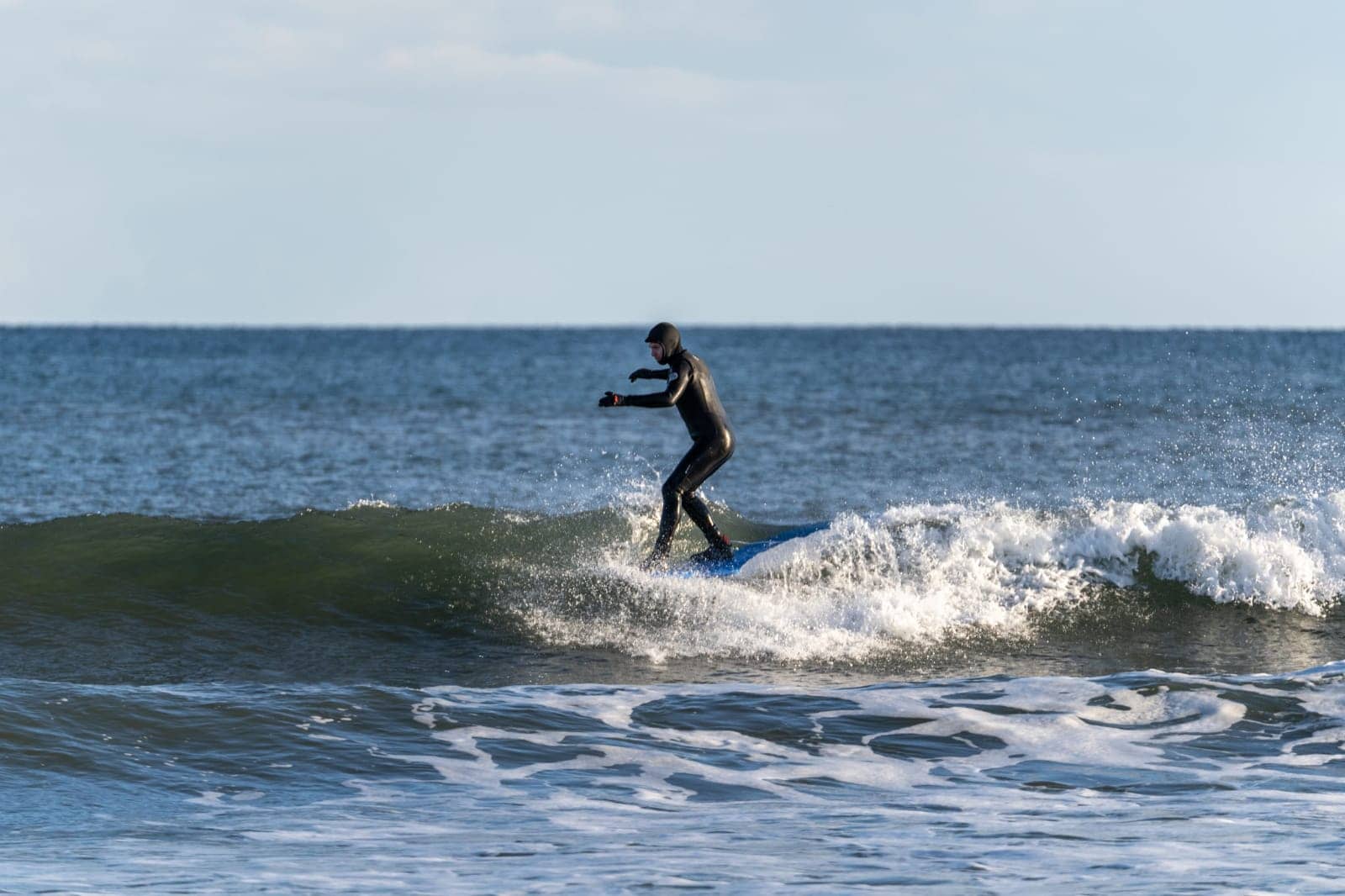
Loaded down with a weighted vest and ankle sleeves he would walk at least 5km a day. Hat pulled down and headphones in he would power through. Driven by an experience with psilocybin mushrooms, Butler also cut all meat and dairy products from his diet. With the disclaimer that they are illegal for recreational use in Ireland. With any substance, legal or otherwise, user’s should be conscious of their consumption, he explained,
“Those mushrooms grow everywhere in Ireland, and they are being studied. They’re openly available, and they really helped me get my life back on track. I ate them. I sat in my garden. I became connected to everything around me. It was like there was a box of shit in my brain, a box of just crap. [It] was just filled with bad emotions, bad thoughts, bad memories. When I ate mushrooms, it was like somebody opened up a trap door in my brain and all the shit just fell out. That really helped me come back to normality. I have to thank the magic mushrooms for that.”
Finally in October, after a couple months of exercise and meals packed with vegetables, he was ready to surf.
“My mind was so ready for it,” smiled Butler. “I was [getting] back into the sea, and back into the ocean. Now, maybe I wasn’t making it out on a bigger day, but on small days, I was able to make it out. I was able to catch waves and I was starting to really enjoy it more now that my head was back in it.”
Back in the water, Butler’s fitness came to him even faster, such that four months later, in February 2021, when a huge swell hit the south coast of Ireland, he was ready. Two systems from the North Atlantic generated massive swells of up to 20ft off the South West coast of Ireland. It was a once in a lifetime harmony of conditions right in Butler’s home turf. Confident in his regained strength and ability, Butler paddled out to some of the best surf of his life.
“It was like the ocean was welcoming me back with open hands. It was like, I’m sending you this swell, now as a gift, as a present. This is all bullshit. Now, don’t get me wrong. I hear what I’m saying,” laughed Butler. “But it’s like the ocean said to me, ‘look, you’ve been away for so long that I’m now welcoming you back. Your fitness is now at a good degree that I’m going to send you this once in a lifetime swell, I’m going to send you this now.’ We might not get a swell like this for another 50 years. So to have this now, to me that felt like something special, which all surfers say that they have a connection to the ocean. I certainly feel a connection to the ocean and that swell was a signifier about how special [the ocean] is for me. That [swell] sealed the deal for me to kind of go, wow, okay. There’s no way that I am ever leaving this again. And now, looking back at that time in my life [when I wasn’t surfing, I’m] kind of going, how the fuck was I ever able to leave this?”
Back on the board and back on his feet, Butler spends his time surfing and working at his family owned surf shop. Also motivated by his own struggles with the mental healthcare system, he has worked to fundraise for organizations that support at risk individuals. Because, as Butler stated about his situation, “The sad thing is that [what happened to me is] happening to so many people [in Ireland]. Instead of being able to know how to deal with your emotions you’re just being handed these fucking drugs.” While medication can be an effective tool for some to healthily manage their mental health, it is not a cure-all. Butler works to uplift organizations that provide alternative strategies for those that need them.
As he’s been surfing more, Butler has explored more of the waves around his home country. Driving with his friend along the northern coast of Ireland, Butler discovered the most beautiful place he’s ever been. Armed with their surfboards, they hiked through dense forest, seeking the ocean. A break in the trees at a headland gave the duo a panoramic view of the waves they sought, urging them onward. Stepping out of the forest and onto the pristine sand they noticed there wasn’t a single footprint in sight. The peace and seclusion was wonderful, and out in the water, Butler and his friend rode wave after wave, reveling in the fantastic surf.
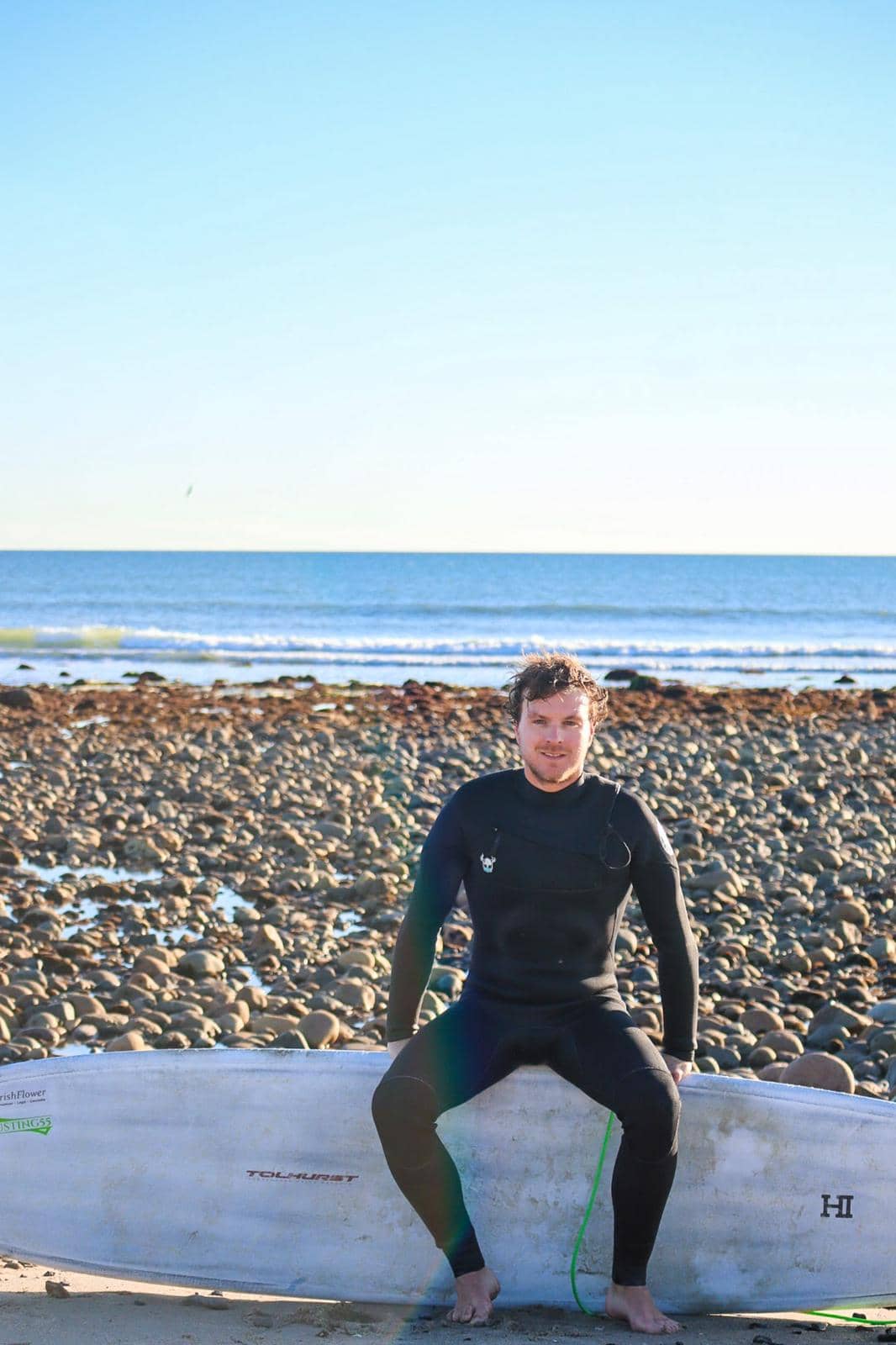
Awestruck by the stunning scenery, Butler adjusted his priorities. While it is still a goal to compete on the WSL, it has become important to Butler to explore and appreciate all the amazing surf around him. So, he bought a car. “I can go explore the Irish coastline,” smiled Butler. “Happy days.”
Reflecting on his journey through life so far, Butler was brought back to the kid from Tramore who felt so alone in the world as a gay surfer. Though the presence of gay surf culture is not as buried as it once was, it’s not nearly enough.
“[I hope more men are able to open up] and become the representation that our sport and our community needs. If you’re [an openly] gay surfer, it doesn’t mean you have to [change and start] walking down the beach in high heels. You can still [just be yourself]. But, it’s the people who are coming up behind you in the sport and people who are already in the sport that need good representation.”
Butler smiled as he thought of future surfers searching the internet for athletes like him. “Maybe it’ll come up [with] a world champion gay surfer. That’s what I want to see.”
